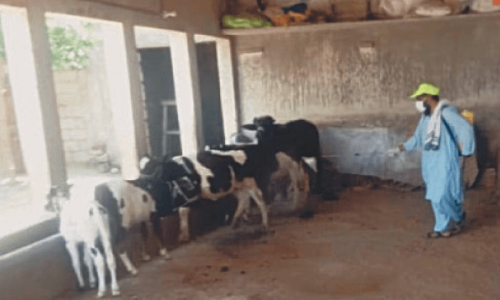ISLAMABAD, March 21: Peace activists from India and Pakistan on Monday called for signing a “no war pact” by the two countries and urged the governments to gradually bring down their defence budgets.
Speaking at a roundtable discussion hosted by a newly-formed think-tank, Jinnah Institute, headed by former information minister Sherry Rehman here on Monday, the participants from the two nuclear countries were of the view that time had come to build pressure on the two governments to at least implement the already-agreed decisions.
“We need a no-war pact,” said Kuldip Nayar, a veteran journalist and former MP, who is heading the Indian delegation. He said both the countries should once-for-all decide that “war is not a solution to any problem.”
Senator Mushahid Hussain of the Pakistan Muslim League-Q (PML-Q) drew the attention of the participants towards what he called a “proxy war” being fought by both India and Pakistan on Afghanistans soil.
He said both the countries should remember that the US was about to leave the country and then they could face real trouble in the region.
Supporting Mr Nayar's viewpoint, he said both India and Pakistan were nuclear countries and there must be a realization on both sides that no one could impose any solution to the core issues.
The PML-Q senator stressed the need for greater economic cooperation in the region and said India had committed a strategic mistake by opting out of the Iran-Pakistan-India (IPI) pipeline project.
Leader of the House in the Senate Nayyar Hussain Bukhari asked the Indian friends not to accuse Pakistan of harbouring terrorism as the country itself was the biggest victim of this menace.
His assertion, however, was immediately rebutted by Shahid Siddiqui, a former Indian MP and editor of Urdu Daily 'Nai Dunya'. He said that Pakistan was actually paying the price of its past policies.
With regard to Kashmir issue, Mr Siddiqui said that instead of just discussing the issue, they should present solution because for Kashmir problem “we will have to make compromises.”
President of the Jinnah Institute Sherry Rehman said both sides should engage in dialogue to mitigate the conflict.
She urged the media from both the sides to play a responsible role and avoid inflammatory remarks against each other.
Human rights activist Tahira Abdullah highlighted that long-term goals should be prioritized, especially given that poverty was high in both the countries.
Activist and journalist Jatin Desai stressed the need for composite dialogue to be resumed as soon as possible and proposed the creation of a parliamentarian caucus, developing strategies for a more open media and a platform for common people to express their views and influence foreign policy.
Earlier, the delegates from India visited the cultural park – Indus Heritage – with a resolve to bridge trust deficits between the two nations through more people to people contact.













































Dear visitor, the comments section is undergoing an overhaul and will return soon.